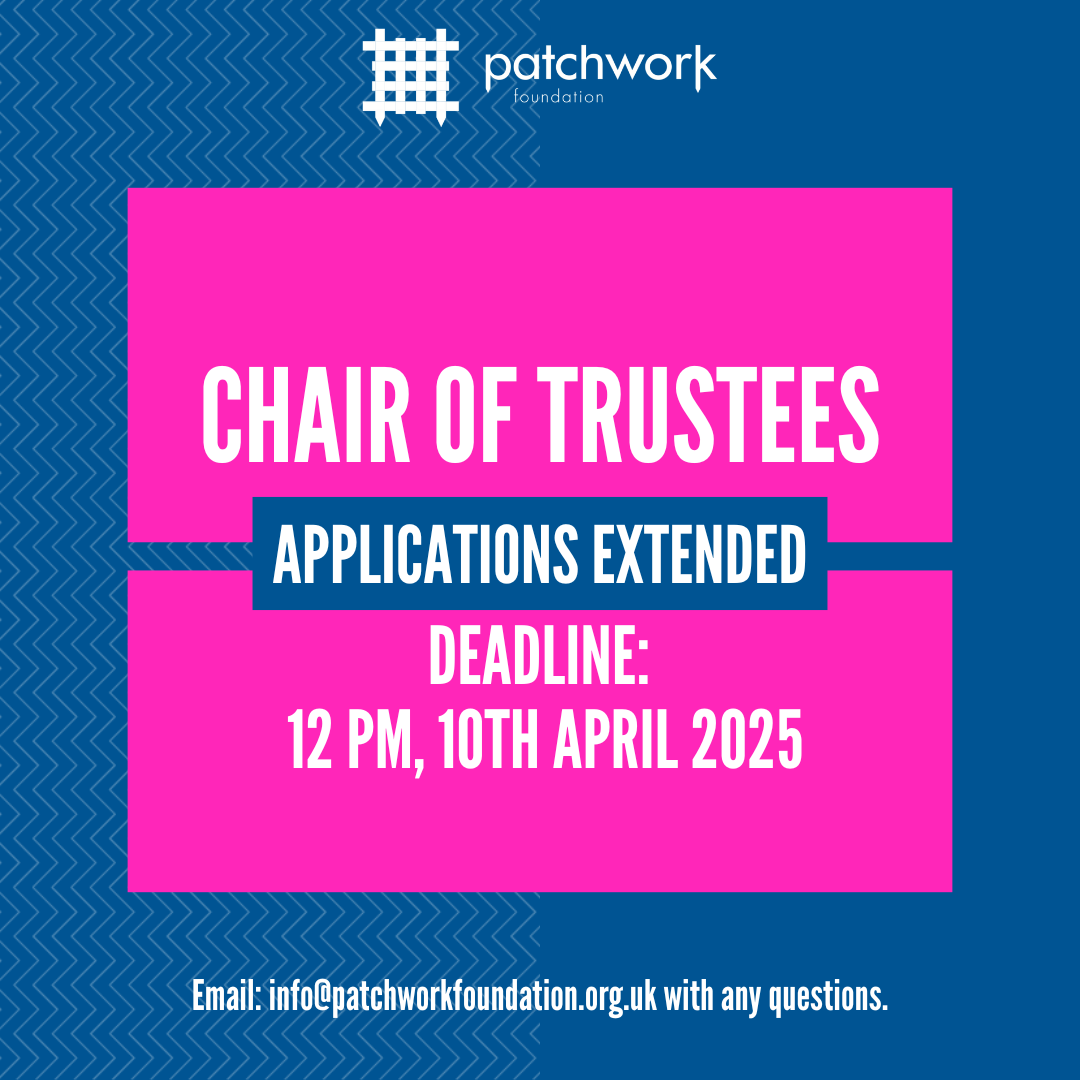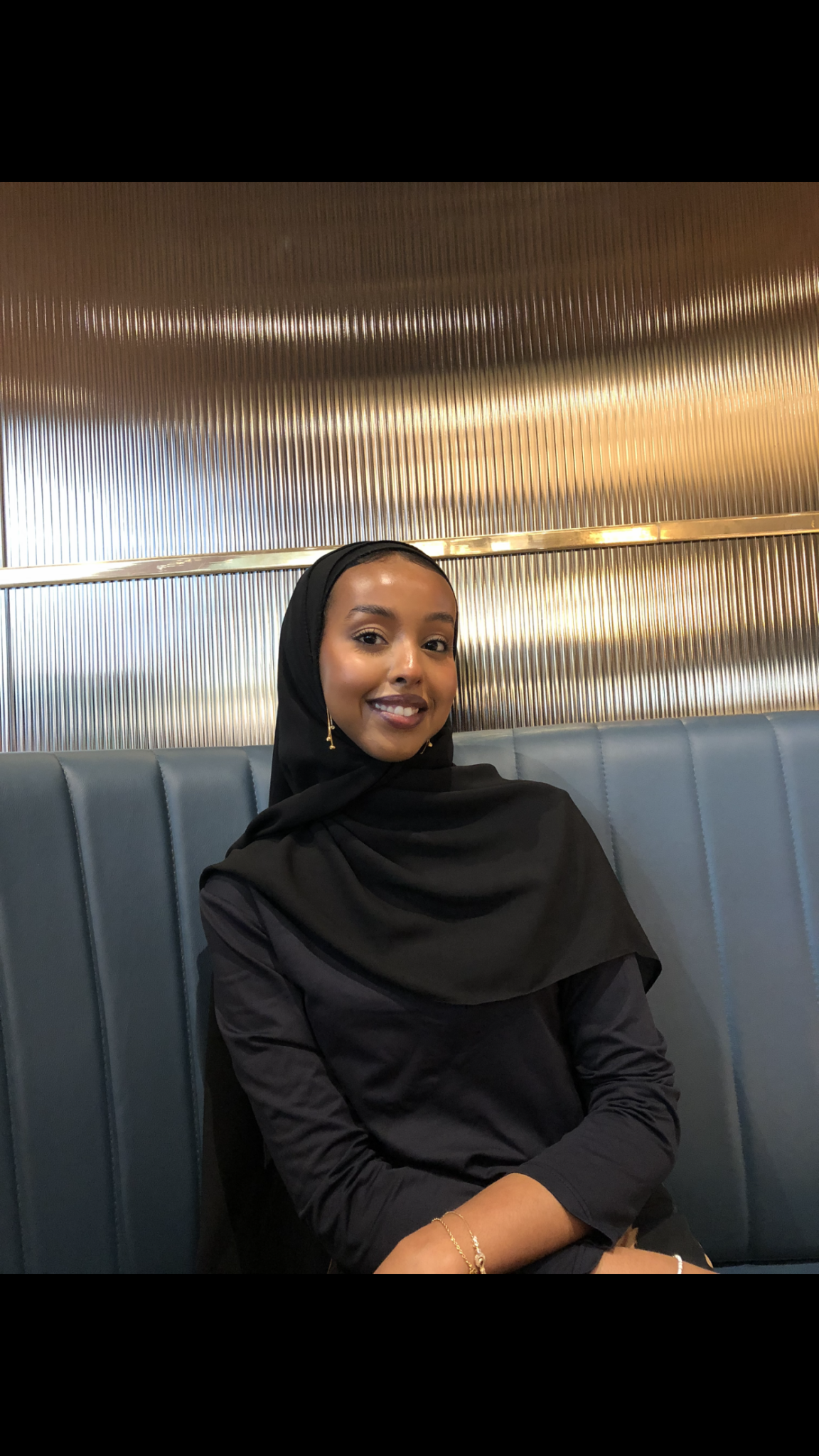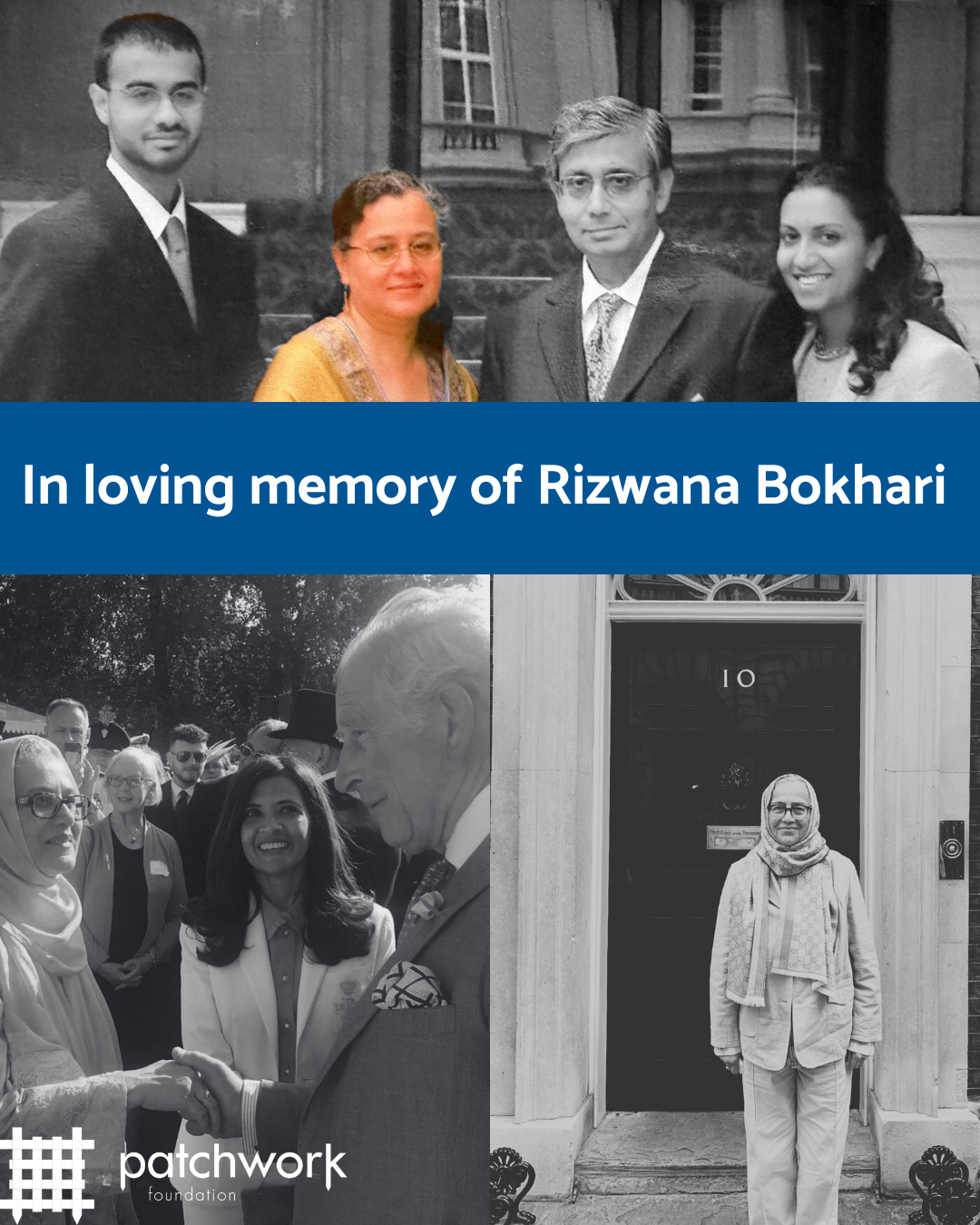“Patchwork doesn’t just leave young people with political knowledge, it also leaves them with a lot of personal power.”
Nasteha Dirow is currently a Committee Operations Officer in the House of Lords. She was previously a Parliamentary Assistant on the Speaker’s Gateway Programme, in partnership with the Patchwork Foundation, where she worked for former MP David Linden and the Speaker of the House. She graduated with a BSc in Psychology from the University of Manchester during which she interned in the Ministry of Housing, Communities and Local Government in the Towns Fund Directorate, working on delivering the previous Governments Levelling up agenda. Her interests include foreign affairs, violence against women and girls and reducing racial inequalities in the UK.
Our journey in the Speaker’s Gateway Programme coincided with a pivotal moment in British politics. We witnessed the final days of an old Parliament, experienced the buzz of a general election, and observed the energising start of a new Parliament, complete with the arrival of over 300 newly elected MPs.
In the first half of the programme, we dove into the fast-paced world of MPs’ offices. There, we gained invaluable insights into the dynamic work they undertake, from how they serve their constituencies, to submitting questions and participating in debates. Particularly, my time in former MP David Linden’s office cultivated my interest in foreign affairs, drafting speeches for debates and answering constituents’ emails on sensitive global issues.
Shifting our focus to the other side of Parliament, we explored various teams in the House Service. This illuminated the collaborative nature of the House of Commons staff with MPs, providing crucial support for the intricate mechanisms that enable MPs to fulfil their vital roles as community representatives. Working in the Speaker’s office, I saw every part of the House of Commons and British diplomacy in action, from meeting Parliamentary clerks, diplomats and ambassadors to the House of Commons.
Recognising that our democracy extends far beyond the walls of Parliament, we were also introduced to the wider governmental landscape. Through insight days at the Foreign, Commonwealth & Development Office (FCDO) and the Department for Education, we saw the expansive civil service ecosystem. We learnt about the critical role civil servants and departments play in both creating and shaping policy and implementing initiatives that pass through Parliament. This comprehensive programme gave us a holistic understanding of British democracy, from the heart of Parliament to the far-reaching branches of the civil service.
White exploring the FCDO, I felt truly privileged to tour such a historically significant building. The Language Centre particularly impressed us with its extensive resources and support for colleagues learning languages. I was delighted to find a book in Somali, which put my skills to the test (much to my parents’ disappointment). Working for a former member with a keen interest in foreign affairs, I found it fascinating to learn how the FCDO formulates policy, responds to written questions, and keeps members informed about UK foreign policy in such a volatile political landscape.
A highlight was the Patchwork Masterclass with Sir Simon Fraser, former FCDO Permanent Secretary. Held in one of the FCDO’s magnificent meeting rooms, Sir Fraser shared his remarkable journey from joining as a Fast Streamer to ascending the ranks. He candidly discussed the challenges of balancing ministerial policy delivery with the responsibility to provide impartial advice.
I was particularly fascinated by the FCDO’s transformation. The department has evolved to actively promote a diverse workforce. This shift is crucial in preventing groupthink and ensuring that the best outcomes are achieved. Before this session, like many others, I was unaware of the various entry points into the FCDO beyond the Fast Stream. However, after a networking session with FCDO and Private Office colleagues, I learned that career paths are diverse. They provided a comprehensive breakdown of their functions, offering insider knowledge on how they support ministers in implementing policy. Their insights on transitioning to work with a new government were especially intriguing.
One person who resonated with me was Helen Alderton, Principal Private Secretary to the Secretary of State for Education. She shared her career path from working in the Cabinet Office to forming policy at Number 10, emphasising the abundance of opportunities for mobility within the Civil Service and the importance of embracing unexpected roles.
We also participated in a practical session on succeeding in Civil Service interviews. A key takeaway was the importance of addressing every aspect of the Civil Service behaviours, ensuring no point is overlooked. As my internship draws to a close and I begin applying for jobs, this advice couldn’t have come at a better time. The mock interviews with Private Office colleagues that followed boosted my confidence in tackling future Private Office interviews.
Throughout these insight days, a recurring theme stood out: dispelling stereotypes about who can become a civil servant and how early one can step into these roles. I’ve learned that the FCDO and Department for Education encompass more than just ambassadors and diplomats. They employs analysts, project delivery managers, and researchers tackling crucial issues like FGM. This diversity underscores that there’s a place for anyone with the right skills and a passion to make a positive difference.
This insight day truly demystified the department for my fellow Patchworkers and me, making the FCDO a place where I can envision my future career. My perception has shifted from viewing it as an unattainable professional goal to one that genuinely values diversity, with a range of ages, backgrounds, and expertise. Whether in the FCDO or the Department for Education, the depth of work is truly impressive, offering opportunities for a wide array of talents and aspirations.
Stay updated
Join our mailing list to stay up to date with all the latest!
Latest news
Testimonials



